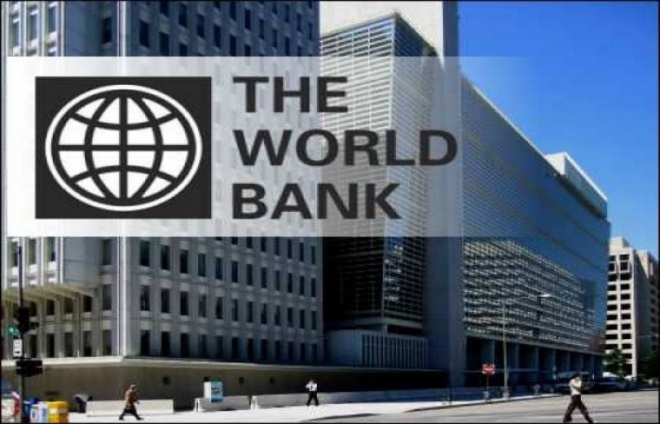Global growth is expected to slow to 2.4% in 2024—the third consecutive year of deceleration, the World Bank Global Economic Prospects 2024 has revealed.
This reflects the lagged and ongoing effects of tight monetary policies to rein in decades-high inflation, restrictive credit conditions, and anemic global trade and investment.
Near-term prospects are diverging, with subdued growth in major economies alongside improving conditions in emerging markets and developing economies (EMDEs) with solid fundamentals, the report pointed.
Meanwhile, the outlook for EMDEs with pronounced vulnerabilities remains precarious amid elevated debt and financing costs. Downside risks to the outlook predominate. The recent conflict in the Middle East, coming on top of the Russian Federation’s invasion of Ukraine, has heightened geopolitical risks.
“Conflict escalation could lead to surging energy prices, with broader implications for global activity and inflation. Other risks include financial stress related to elevated real interest rates, persistent inflation, weaker-than-expected growth in China, further trade fragmentation, and climate change-related disasters”, the report stressed.
Against this backdrop, the report said, policy makers face enormous challenges and difficult trade-offs. International cooperation needs to be strengthened to provide debt relief, especially for the poorest countries; tackle climate change and foster the energy transition; facilitate trade flows; and alleviate food insecurity. EMDE central banks need to ensure that inflation expectations remain well anchored and that financial systems are resilient.
Again, elevated public debt and borrowing costs limit fiscal space and pose significant challenges to EMDEs—particularly those with weak credit ratings—seeking to improve fiscal sustainability while meeting investment needs.
Commodity exporters also face the additional challenge of coping with commodity price fluctuations, underscoring the need for strong policy frameworks.
Regional Prospects
The report said although some improvements in growth are expected in most EMDE regions, the overall outlook remains subdued.
Growth this year is projected to soften in East Asia and Pacific—mainly on account of slower growth in China—Europe and Central Asia, and South Asia. Only a slight improvement in growth, from a weak base in 2023, is expected for Latin America and the Caribbean. More marked pickups in growth are projected for the Middle East and North Africa, supported by increased oil production, and Sub-Saharan Africa, reflecting recovery from recent weakness.
In 2025, the report said, growth is projected to strengthen in most regions as the global recovery firms.
Fiscal Policy in Commodity Exporters: An Enduring Challenge
The report alluded that fiscal policy has been about 30% more procyclical and about 40% more volatile in commodity-exporting emerging market and developing economies (EMDEs) than in other EMDEs. Both procyclicality and volatility of fiscal policy—which share some underlying drivers—hurt economic growth because they amplify business cycles.
The report pointed out that structural policies, including exchange rate flexibility and the easing of restrictions on international financial transactions, can help reduce both fiscal procyclicality and fiscal volatility.
“By adopting average advanced-economy policies regarding exchange rate regimes, restrictions on crossborder financial flows, and the use of fiscal rules, commodity-exporting EMDEs can increase their GDP per capita growth by about 1 percentage point every four to five years through the reduction in fiscal policy volatility”.
Such policies, the World Bank, said should be supported by sustainable, welldesigned, and stability-oriented fiscal institutions that can help build buffers during commodity price booms to prepare for any subsequent slump in prices. A strong commitment to fiscal discipline is critical for these institutions to be effective in achieving their objectives.
Latest Stories
-
NSS management assists Papao fire victims
22 mins -
EXPLAINER: Will dumsor end soon?
53 mins -
IMANI Africa takes on EC, accuses it of lying and publishing half truths
2 hours -
Manasseh Azure calls for investigation and prosecution of those responsible for GRA/SML contract
2 hours -
Kwesi Atuahene: Ghana’s health capital depends on HealthTech – Africa Center for Digital Transformation
2 hours -
13 signs your wife is planning on leaving you and you have no idea
2 hours -
IMANI Africa: Ghana’s EC’s dangerous and pathological conduct
3 hours -
If I speak there will be fire – Salah on Klopp row
3 hours -
Grieving after divorce is normal, but this particular kind of grief isn’t
4 hours -
10 beautifully unexpected ways husbands proposed to their wives
4 hours -
Reality zone with Vicky Wireko: Painting Ghana purple: Be aware, May is month of mental health awareness
4 hours -
Prof Opoku-Agyemang’s integrity is admirable – Inusah Fuseini
4 hours -
Your reign has been a beacon of wisdom – Alan Kyerematen tells Asantehene
4 hours -
Akufo-Addo’s driver wins La Dadekotopon NPP primary
4 hours -
Education Minister must channel resources to rebrand basic public schools into tackling critical needs – Minority
4 hours

